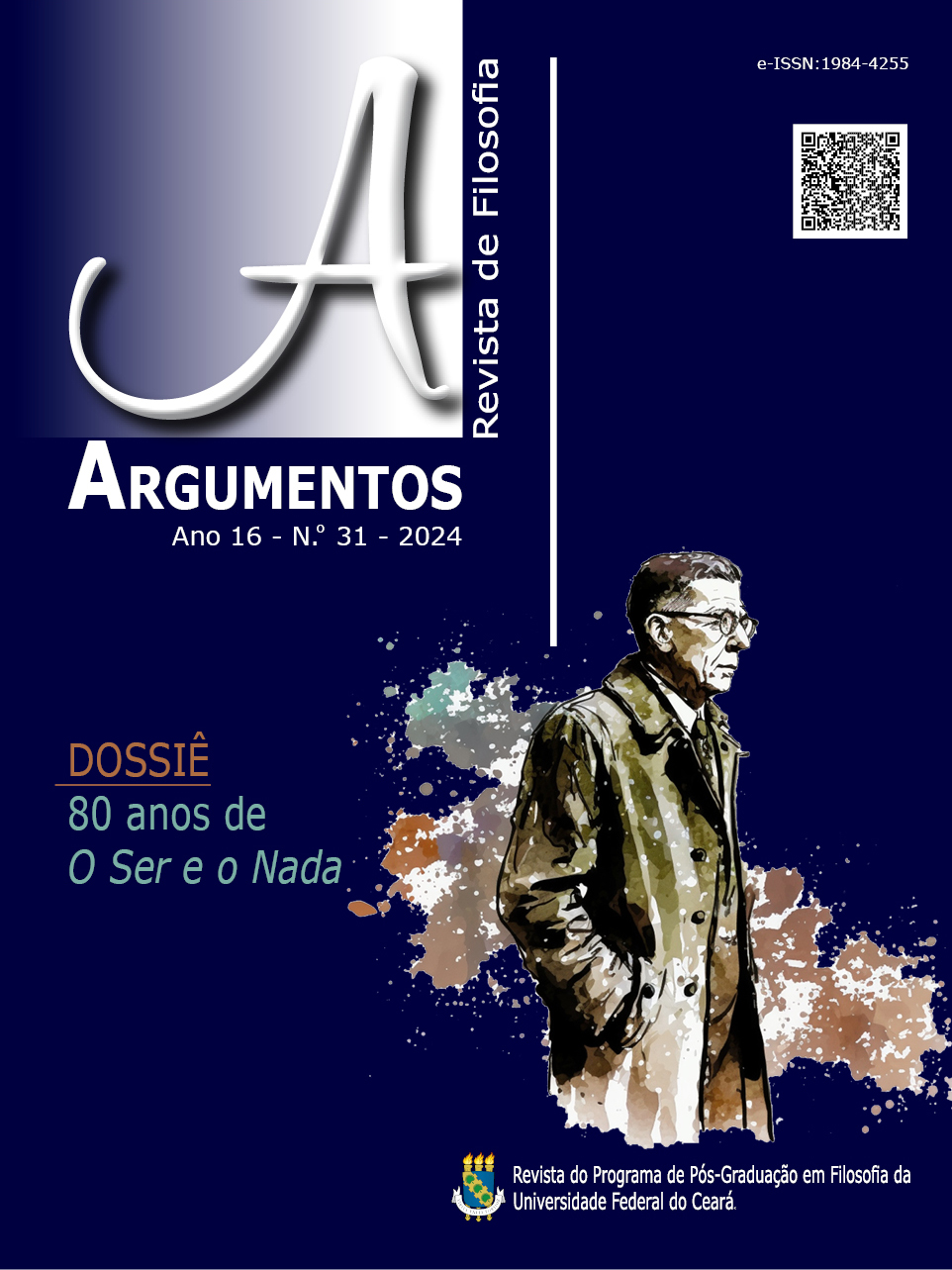An ambiguous response to the false dilemmas of philosophical making – the actuality of the Sartrean perspective of Being and Nothingness
DOI:
https://doi.org/10.36517/Argumentos.31.1Keywords:
Sartre. Ambiguity. Current philosophical making.Abstract
The aim of this article is to think about a current issue, the discourse of the Brazilian philosophical making, not worked in the content of Being and Nothingness. However, we think it is possible to bring up some of the themes discussed there, as well as Sartre's philosophical writing, to warn us about the pitfalls of this discourse, which is positioned as the opposite and better than the previous one, but which ends up reproducing what he criticizes by remaining in an excluding dualism. Returning to the Sartrean perspective of thinking in terms of ambiguities, avoiding falling into both realism and idealism, balancing presence to oneself with presence to the world, seems us fundamental, even today, for a more complex discussion, which does not fall into false dilemmas.
References
SARAMAGO, J. A Caverna. São Paulo: Cia. das Letras, 2020.
SARTRE, J-P. A imaginação. São Paulo: Difusão Europeia do Livro, 1967.
SARTRE, J-P. Esboço de uma teoria das emoções. Porto Alegre: L&PM, 2006.
SARTRE, J-P. O imaginário. Petrópolis: Vozes, 2019.
SARTRE, J-P. O ser e o nada. Petrópolis: Vozes, 1999.
SARTRE, J-P. Uma ideia fundamental da fenomenologia de Husserl: a intencionalidade In: Situações I. São Paulo: Cosac & Naify, 2005.
YAZBEK, A. C. A desorganização interna do Ser e o surgimento da realidade humana em O ser e o nada. Revista Dois Pontos. Curitiba/São Carlos, v. 3, n. 2, p. 37-51, out./2006.
Downloads
Published
Issue
Section
License
Argumentos magazine is licensed under an International Creative Commons Attribution License.
The Magazine uses CC BY inclusion
1) The authors retain the copyright granted to the magazine or the right to initial publication, with the work regularly licensed under the Creative Commons Attribution, which allows the sharing of the work with acknowledgment of authorship and initial publication in this magazine.
2) The authors are authorized to contract additional applicable contracts, for non-exclusive distribution of the version of the work published in this journal (for example, publication in the institutional repository or as a chapter of the book), recognition of authorship and initial publication in this journal.
3) Authors are authorized and encourage to publish and distribute their work online (for example, in institutional repositories or on their personal pages) at any time before or during the editorial process, as they can generate productive changes, as well as increase the impact and reference of published work.




.jpg)










._._3.png)
1.jpg)
._._._.png)
